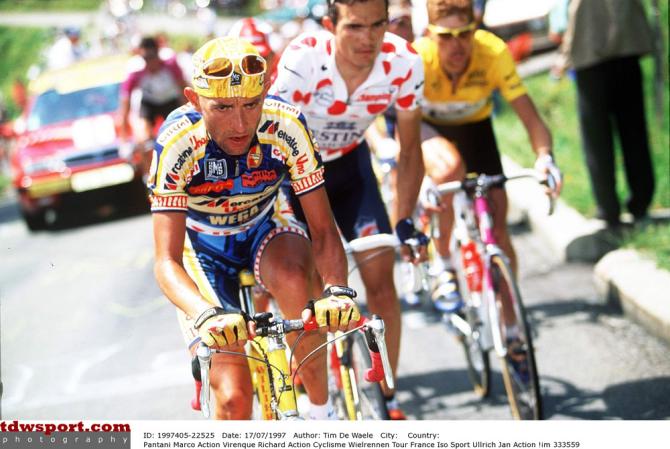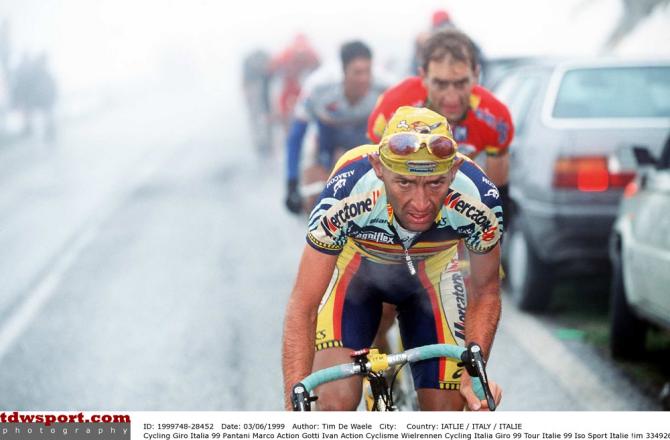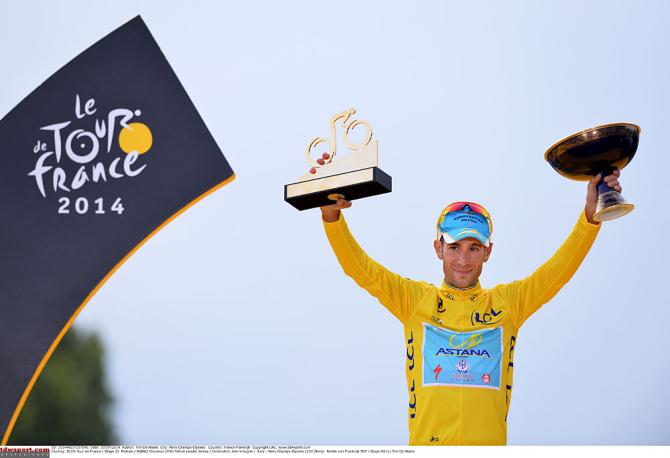Nibali calls for restraint in media coverage of Pantani case
I don’t think it does Marco any good, says Tour de France winner



Tour de France winner Vincenzo Nibali has called for restraint in the media coverage that has greeted the reopening of the investigation into Marco Pantani’s death.
Magistrates in Rimini have agreed to reopen the case following the submission of a dossier of evidence last week by a lawyer acting on behalf of Pantani’s family. While the initial autopsy and investigation suggested that Pantani had died from an accidental overdose of cocaine on February 14, 2004, the new dossier claims that he was murdered after being held to the ground and forced to drink cocaine mixed with water.
Italian newspapers Gazzetta dello Sport and La Repubblica both led with the story on Saturday morning, with Gazzetta’s coverage even featuring a series of comic book-style illustrations of the alleged murder. Speaking to the website of the Italian version of Vanity Fair magazine, Nibali expressed his unease about the way in which the news has been handled in his home country.
“I don’t think it does cycling any good to go back and talk about Pantani’s death and I don’t think it does Marco any good either. His fans only want to remember him as the champion he was, not for that tragic night,” Nibali said.
“I can understand Marco’s mother and family, who want the truth about the death of their son. But I don’t agree with splashing this news on the front of the newspapers.”
Previous Italian Tour de France winners Ottavio Bottecchia and Fausto Coppi also died tragically premature deaths, which have also been subject to repeated conjecture and hypothesis over the years. Nibali pointed to the unfounded 2002 claim that Coppi had been murdered as reason for caution when commenting on the Pantani case.
“The investigators haven’t made a statement and there isn’t a verdict. I don’t think it’s right that the newspapers are conducting the trial. I remember a few years ago the story came out that Fausto Coppi hadn’t died from malaria but had been murdered; but then it was shown to be a hoax,” Nibali said.
Get The Leadout Newsletter
The latest race content, interviews, features, reviews and expert buying guides, direct to your inbox!
“I’m just saying that you need to be careful before making certain affirmations that aren’t good for cycling.”
In winning the Tour last week, Nibali bridged a 16-year gap to become the first Italian winner of the race since Pantani in 1998. Pantani’s mother, Tonina, gave Nibali a gift of one of his yellow jerseys in February, and Nibali is set to return the favour by donating a maillot jaune to the Pantani museum in Cesenatico.
“I wasn’t able to go when she organised a commemoration in Cesenatico for the tenth anniversary of his death because I was waiting for the birth of my daughter, Emma,” Nibali said. “I called her to explain and I promised that I would come and visit her privately. In the meantime, she sent me the jersey through my teammate Michele Scarponi, which was a great gesture of affection.”
Nibali described Pantani as one of his childhood heroes but downplayed comparisons between them as riders. “There’s no sense in comparisons because in ten years in cycling, everything changes – bikes, technologies, roads. It would be like comparing [Felice] Gimondi and me,” Nibali said.